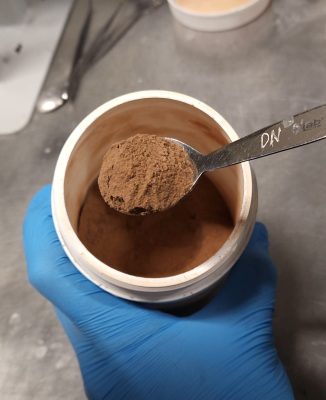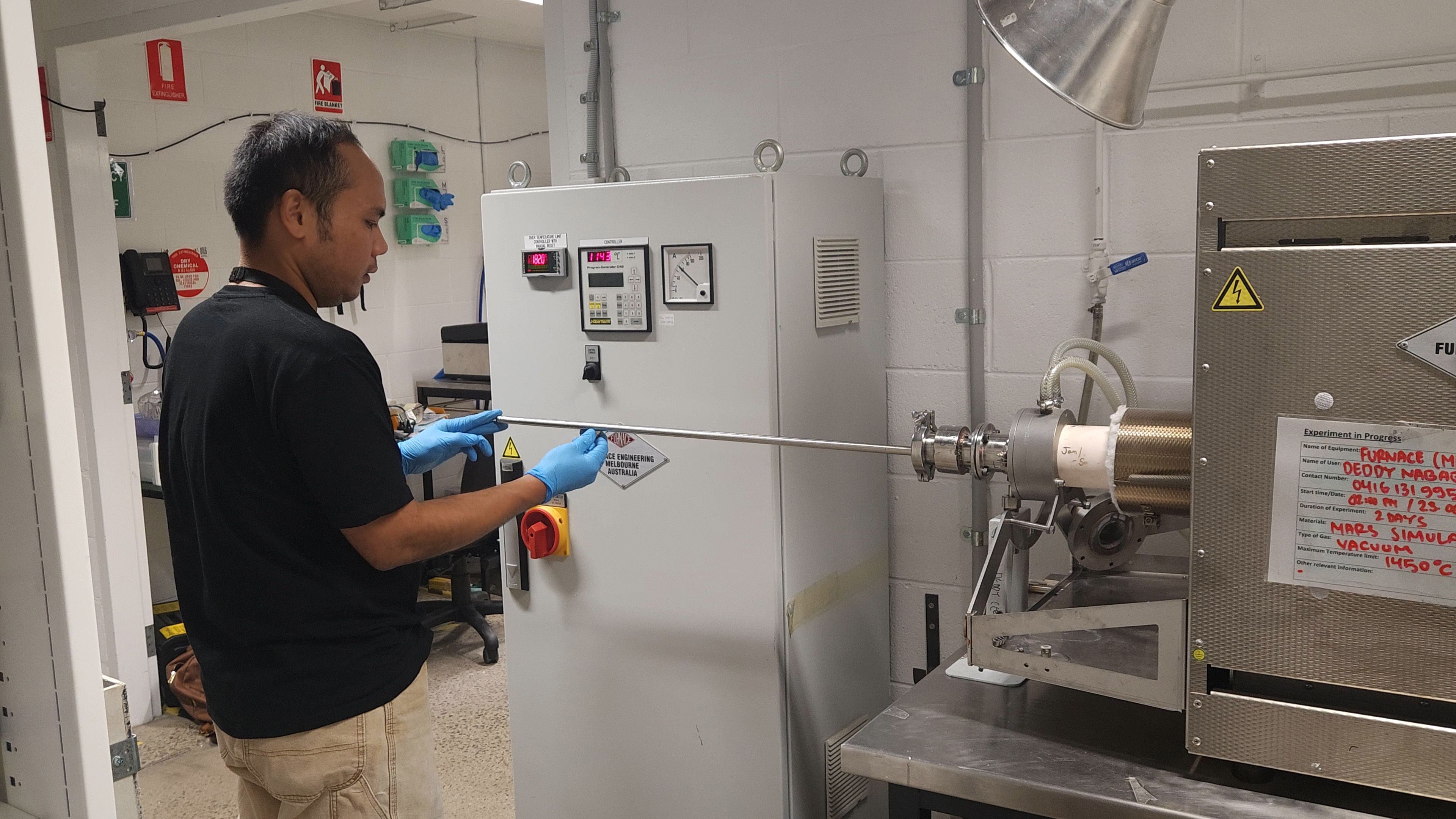
Every school child can tell you these days that Mars is red because it’s rusty. The silicate rock of the martian crust and regolith is very rich in iron oxide. Now Australian researchers at CSIRO and Swinburn University claim they know how to break that iron loose.
In-situ Resource Utilization (IRSU) is a big deal in space exploration, with good reason. Every kilogram of resources you get on site is one you don’t have to fight the tyranny of the rocket equation for. Iron might not be something you’d ever be able to haul from Earth to the next planet over, but when you can make it on site? You can build like a Victoria is still queen and it’s time to flex on the French.
The key to the process seems to be simple pyrolysis: they describe putting dirt that is geochemically analogous to martian regolith into a furnace, and heating to 1000 °C under Martian atmospheric conditions to get iron metal. At 1400 °C, they were getting iron-silicon alloys– likely the stuff steelmakers call ferrosilicon, which isn’t something you’d build a crystal palace with.
It’s not clear how economical piling red dust into a thousand-degree furnace would be on Mars– that’s certainly not going to cut it on Earth– but compared to launch costs from Earth, it’s not unimaginable that martian dirt could be considered ore.

